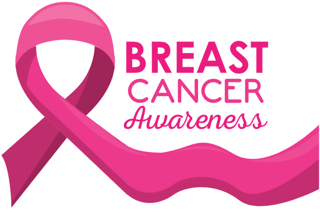 Every woman wants to know what she can do to lower her risk of breast cancer. Some of the factors associated with breast cancer – being a woman, age, and genetics – can’t be changed. Other factors – being overweight, lack of exercise, eating unhealthy food – can be changed by making the right choices.
Every woman wants to know what she can do to lower her risk of breast cancer. Some of the factors associated with breast cancer – being a woman, age, and genetics – can’t be changed. Other factors – being overweight, lack of exercise, eating unhealthy food – can be changed by making the right choices.
A reduction in overall body fat is associated with lower levels of breast cancer markers. The study published in Endocrine-Related Cancer, found that levels of several breast cancer risk markers were reduced in postmenopausal women who lost total body fat.
The Study
In this study, 243 overweight, postmenopausal women lost 10-12 lb of weight over 16 weeks. Levels of sex hormones, leptin and inflammatory markers were compared to levels prior to weight loss. Total and abdominal fat changes were assessed using x-ray and MRI-based scans.
After 16 weeks a reduction in total body fat was associated with favourable changes in the levels of breast cancer risk markers, including sex hormones and leptin, whilst a reduction in belly fat was more associated with a reduction in inflammatory markers.
This higher risk is because fat cells make estrogen; extra fat cells mean more estrogen in the body, and estrogen can make hormone-receptor-positive breast cancers develop and grow.
Regular exercise reduces breast cancer risk for both pre- and postmenopausal women. The American Cancer Society and many doctors recommend women exercise 4 to 5 hours per week at a moderate intensity level. Brisk walking is considered moderate intensity exercise.
In summary, excess fat can increase the body's estrogen levels. Estrogen can cause the growth of breast cancer cells.
Other Breast Cancer Prevention Strategies
Limit alcohol. Research suggests that drinking more increases breast cancer risk. Each 10-gram-per-day increase in alcohol consumption leads to a 7% to 10% increase in breast cancer risk (an average drink has about 14 grams of alcohol). Even light drinking can increase risk.
Still, many people believe the heart benefits of drinking alcohol, especially red wine, outweigh any breast cancer risks. But it’s important to know that there are other ways to keep your heart healthy besides drinking alcohol. Women who are concerned about breast cancer risk may want to limit alcohol or avoid it completely.
The researchers reported that women who most closely stuck to the American Cancer Society guidelines for weight, diet, drinking alcohol, and exercise had a 22% lower risk of breast cancer compared to women who strayed the farthest from the guidelines.
Consider preventive medicine. The U.S. Preventive Services Task Force (USPSTF) and the American Society of Clinical Oncology (ASCO) released new guidelines on using hormonal therapy medicines to reduce risk in women with a high risk of breast cancer who haven’t been diagnosed.

